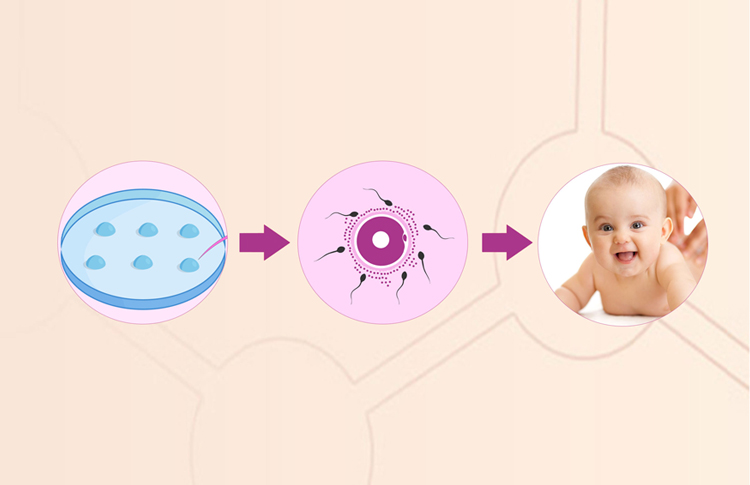Why IVF?
Your treatment, to achieve pregnancy normally starts with fertility drugs , then later on Intra Uterine Insemination (IUI). If these fails to give desired result then IVF would be the better option that helps the couple conceive.
When to do IVF?
IVF is indicated in conditions like:
IVF for You?
IVF is an ART technique where an egg & sperm are made to fertilize, in vitro, in the sophisticated IVF laboratory. After fertilization embryo is transferred into the uterus for further development. IVF is not a painful procedure for many people.

IVF Process?
For You: On day two or three of your menstrual cycle we start daily injections, Scans and blood investigations to monitor follicular growth. Controlled Ovarian Hyperstimulation is done. Unlike natural cycles we expect the ovary to hyper respond with multiple follicular growth. Once the follicles are mature, Ovarian trigger injection given and egg retrieval done under anesthesia exactly at the time duration of 36 hours in the laboratory.
Your Husband: Semen sample to be given on the day of oocyte retrieval.
Fertilization: Processed semen sample is placed along with retrieved eggs in a petri dish in an IVF lab. Or else in male factor infertility, sperms are selected and injected in to the egg (ICSI) to increase the fertilization rates.
Embryo: After fertilization, embryo (preferably a Blastocyst) is transferred to improve your chances of pregnancy.
Blood Test: Two weeks later blood test is done to check for pregnancy.
Repeat: If blood test is not positive, the IVF process is repeated to achieve pregnancy.
Risks:
- Ectopic Pregnancy: If embryo gets implanted outside the uterus causing abdominal pain & vaginal bleeding.
- Ovarian Hyperstimulation Syndrome (OHSS): Even though Infertility drugs may cause OHSS, the incidence is almost negligible these days with improved protocols and post-operative care.
- Twin Pregnancy: If more than one embryo is implanted in uterus, then chances of twin pregnancy or even triplets, quadruplets may happen.
Counselling
Infertility is a couples problem. We counsel both couples for a open discussion throughout evaluation, diagnosis and treatment phases which eventually helps get better desired outcomes.
Support network
Intended couples are invited for a discussion with our open minded patients who got treated with us. One on one discussion or telephonic discussions can be arranged.